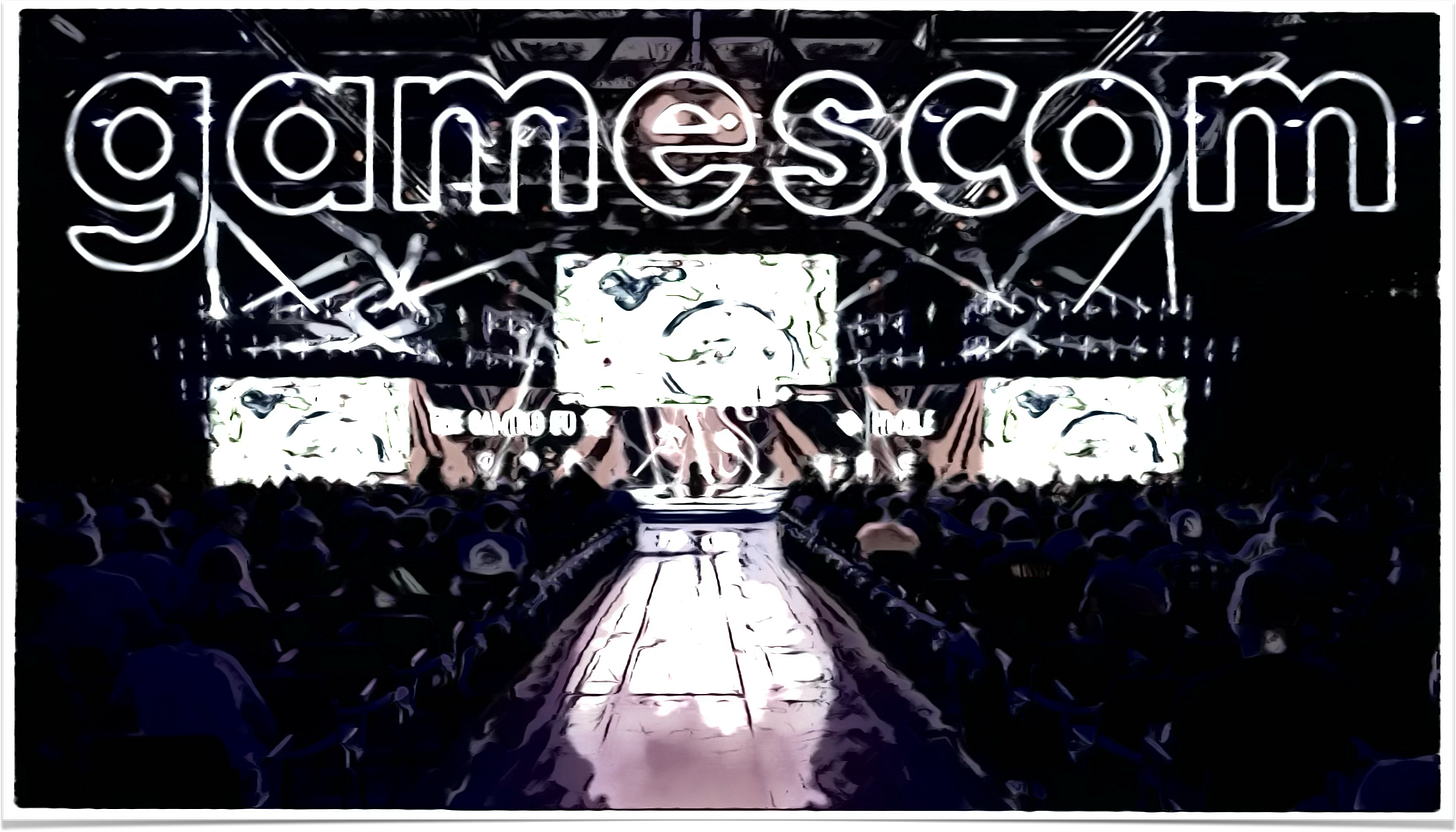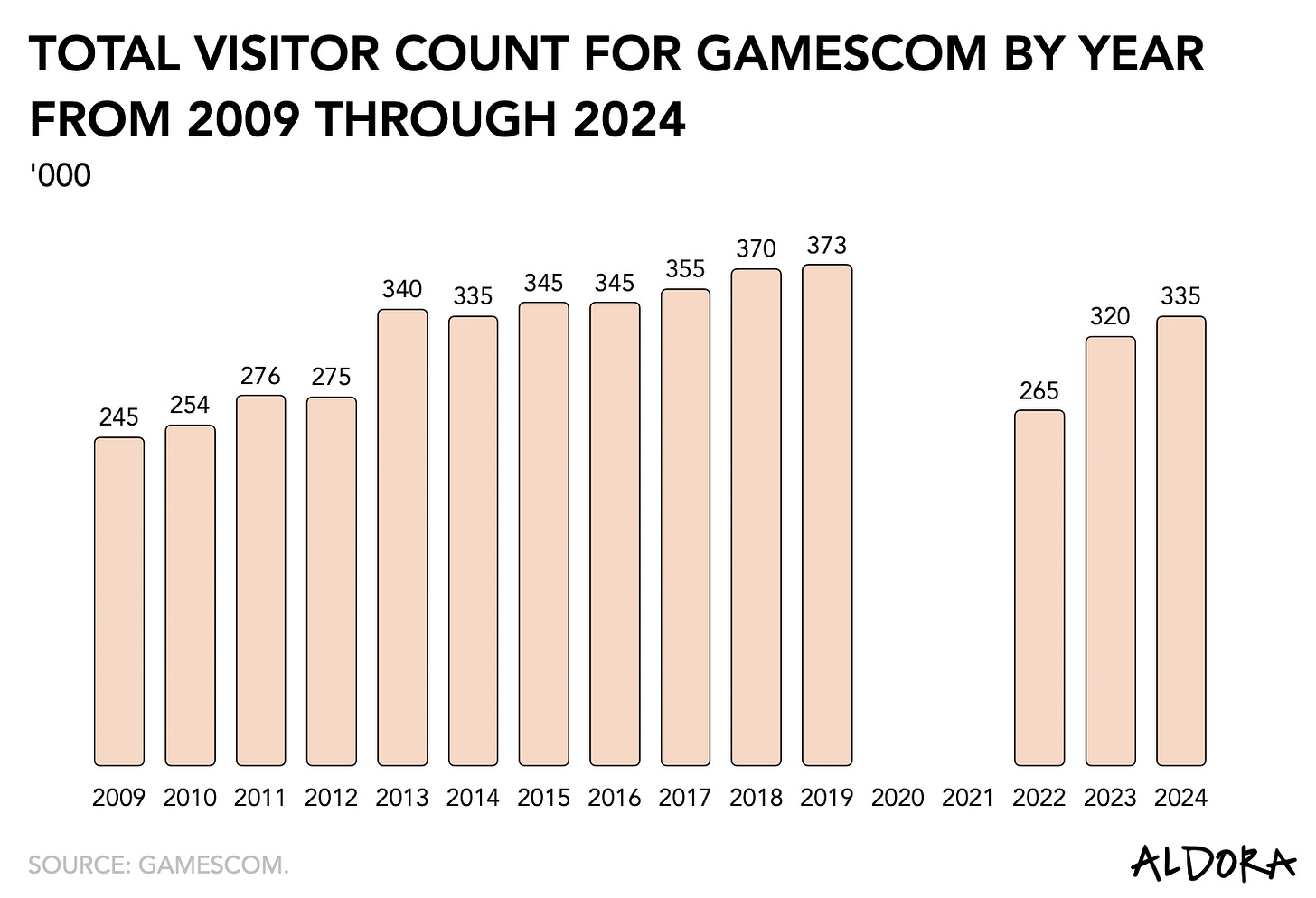Console makers play with pricing
PlayStation issues price increases as Xbox hints at cheaper Game Pass tiers
The SuperJoost Playlist is a weekly take on gaming, tech, and entertainment by business professor and author Joost van Dreunen.
After three weeks, I’ve returned from the mountain, armed with field data. With help from the smallest child, we logged the following animal sightings:
47 deer
8 bears
4 turkeys
several spiders
one bat
The 5 a.m. indoor sighting of the bat was not well received, as my wife’s reaction confirmed at a record-setting volume.
On to this week’s update.
NEWS
Console makers play with pricing
It’s a week of opposites.
Sony announced a $50 price increase for PlayStation consoles this week, citing a “challenging economic environment.” Following the December hike that pushed the PlayStation 5 Pro to $750, the move underscores the ongoing shift of gaming into a luxury category.
The news comes just weeks after PlayStation reported record-breaking first-quarter revenue of $6.5 billion, primarily driven by third-party publishing and PlayStation Plus subscriptions. That’s salty, of course. Sony had previously increased the price for its PS5 Pro less than a year ago. The new price hike is entirely man-made. Or rather, Trump-made. The ongoing volatility in the global economy and the rush to implement tariffs has started to materialize.
By contrast, Xbox hinted at cheaper Game Pass options.
In an interview, Jason Ronald, the VP of Next Generation at Xbox, implied new pricing tiers are coming to the company’s Game Pass service.
…there’s a lot of players who use Game Pass Ultimate to access the cloud, whether that’s the primary way they play or just an additional way to play when you’re on the go… it really opens up the opportunity to make it much more affordable and to give more, make it more accessible to more players, whether that’s going into new regions or new ways to actually access the cloud.
Despite Xbox not having updated its total subscriber numbers for some time, a basic understanding of subscription economics suggests that the service will expand in two directions. The first will be a higher, more expensive tier (e.g., $30 a month) for those highly active, premium players eager to get their hands on Xbox’s AAA catalog on their release dates. The second will be a cheaper tier, or, possibly, even a mobile version.
My guess is that the two-pronged approach will help the firm push closer to its 100 million subscriber ambition.
The contrast between Microsoft and Sony highlights the diverging strategies of two firms under similar economic pressures. One has been moving away from a model that centers on hardware and is experimenting with price discrimination to expand its subscription base. The other is doubling down on hardware as a premium product. It sets the stage for this year’s holiday season as legacy platforms adjust to the macro-economic impact of tariffs and inflation, offering a glimpse of console gaming’s next iteration.
Chart of the Week
It will have been hard to miss the fact that Gamescom, Europe’s biggest gaming event, is taking place this week in Cologne. In his introductory remarks at Opening Night Live, Geoff Keighley said, "It turns out that E3 didn't die. It just moved right here to Germany." Possibly.
Total visitor numbers for Gamescom tell a story of its rise as a significant industry gathering, its pandemic disruption, and a cautious rebound.
LEGO low-key throwing shade at Roblox
With its 2023 investment and collab with Fortnite, the Danish brickmaker has been fairly transparent about how it plans to futureproof itself. Digital playspaces are increasingly at the center of its offering, going well beyond the also very successful but more traditional rollout of IP-based film productions, and have convinced LEGO to double down. In its 2024 annual report, LEGO states:
“Gaming is a favourite pastime among kids, and we are exploring new and exciting ways of blending digital and physical play. Since its launch in December 2023, LEGO Fortnite has engaged over 87 million players.”
It has since expanded the collaboration with Epic Games and released the first associated physical sets. As part of this effort, it also recently appointed Aaron Leob, a veteran games industry exec (ex-EA, Disney, and Scopely). He heads a new division tasked with creating innovative digital experiences that extend beyond licensing the firm’s IP. In an interview with The Deconstructor of Fun, Leob explains the mandate is “generational” because the toymaker wants to stay culturally relevant for the next 50 years.
It pairs well with the strategies developed by other toymakers, who, in their own way, are also trying to stay relevant and adapt to how their audiences play today.
It leads to two immediate observations.
First, a long-term horizon is a clear competitive advantage. Few companies can invest across decades without provoking shareholder backlash. In this respect, LEGO resembles other behemoths, such as Disney and Nintendo, which have historically resisted investor pressure for short-term gains. The difference, of course, is that LEGO is a privately held company. Publicly traded firms in the interactive entertainment industry must constantly cater to investor demands, often forcing them to make short-term decisions that ultimately constrain long-term growth.
Second, existing brands serve as a crucial differentiator in a saturated digital market. Considering the oversupply of content on mobile and PC, for instance, branded games distinguish themselves. For parents, it is short-hand for: ‘This game is safe for your munchkin to play.’ As much as online games are capable of spawning their own unique intellectual properties and cultural touchstones, existing brands are leveraging their core values to signal quality in these emergent play spaces.
It is the tip of the spear for Loeb when developing experiences for kids, and where LEGO throws shade. In the same week that the State of Louisiana filed a lawsuit against Roblox, Loeb underscores LEGO’s differentiator:
“How is it going to happen in a way that’s healthy and good? Where it’s actually a great thing kids are interacting with it—because not everyone in the digital space is looking after their safety and wellbeing.”
Oh snap.
(Like the blocks, see. Get it?)
Lady Gaga hits the Roblox runway
Over the weekend, Dress to Impress, one of the most popular games on Roblox, hosted a Lady Gaga event. Totaling 33.5 million visits, with a peak concurrent user count of 598,000, the event follows a recent celebrity appearance by Taylor Swift’s football boyfriend on Grow a Garden. The increasing frequency and high user counts indicate that celebrities and musicians are now regularly leveraging Roblox and gaming in general as an established way to reach their audiences.
Appcharge raises $58M toward distribution innovation
The push toward distribution innovation is in full swing. With its latest Series B round, the Israel-based payment firm Appcharge has now raised a total of $89 million from firms like Playrix, Supercell, BITKRAFT, Play Ventures, Smilegate, and others.
Appcharge provides the infrastructure for publishers to bypass app store fees and sell in-game items directly to players. Its services range from web stores and payment links to real-time segmentation, rolling offers, fraud prevention, tax registration, and merchant-of-record compliance.
The new funding round reflects both performance and timing. Appcharge has grown 14 times year-over-year, now processing more than $500 million annually across 100+ games, and delivering publishers an average 35% profit lift. At the same time, recent court rulings against Apple and Google have weakened their dominance in app stores. Following Epic Games’ victory, platform holders must now allow off-platform discounts. I previously calculated the value of this prosperity bomb at $4.1 billion for mobile game makers, with top firms—several of which back Appcharge—best positioned to capture those gains.
Appcharge’s momentum mirrors efforts by firms like Xsolla, which provide similar direct-to-consumer infrastructure. But its rapid growth and heavyweight investor base suggest it could become a central player in this new ecosystem.
It also raises questions for Unity, which, by all accounts, should be in a strong position to offer something similar. Likely, the Appcharge investment is both a short-term play as mobile game makers seek to improve their margins while keeping an eye on a potential acquisition by a larger entity, such as Unity, down the road.
While the investment in a payment company may not register on most people’s radars, it underscores how the balance in interactive entertainment is shifting away from entrenched platforms and back to developers and publishers.
Try-before-you-buy is back
Speaking of distribution innovations, NVIDIA, Discord, and Epic Games are collaborating to demo a new “Play Instantly” feature that allows you to try games directly within Discord.
The service allows players to click a “try a game” button inside a Discord server, connect their Epic Games account, and immediately jump into a Fortnite session via GeForce Now without any downloads or installs required.
The economics look promising. Discord claims that 90 percent of its 200 million monthly active users play games, making it the “digital living room.” Social play drives higher engagement, and Discord is now leveraging that dynamic to tackle the industry’s perennial problems of discovery and user acquisition.
The Verge’s Sean Hollister correctly compares it to the now defunct Gaikai service (acquired by Sony in 2012), which also offered players the ability to try out a title before committing to buying it. Back then, of course, the product-based model was still dominant, and demoing a new title was a key part of getting players to commit fully.
If the experiment proves successful, “Play Instantly” has the potential to reduce friction in discovery significantly.
Epic scores a win down under
Following a ruling by the Federal Court, stating that Apple had “substantially lessened competition” by blocking native apps outside its App Store, Epic Games announced that Fortnite and the Epic Games Store will return to iOS in Australia.
While the court rejected claims of unconscionable conduct, the decision marks another crack in Apple and Google’s dominance over the mobile economy, following similar rulings in Japan, Europe, and the U.S. Apple has said it will appeal. Still, for Epic, the verdict represents another step toward lowering the tolls developers pay to reach players. Earlier this week, I joined the BBC’s Global News Podcast to unpack what this ruling means for digital markets—listen here.
PLAY/PASS
Play. The otherwise usually wordy New York Times has launched a new numbers-based game, Pips.
Pass. ZeniMax Media axed more employees in Madison in response to “the indefinite shelving of a project and other business priority changes."
NEXT UP
I’m headed to Seattle for GamesBeat Engage to join Krafton, 1UP Ventures, Vivrato, Xsolla, and Accelbyte for some hot takes. Come say hi!





After the recent changes and price increases to Game Pass, I remembered this article, at the time I told myself that with the increasing interest of the audience in mid-priced games and Xbox backing away from the $80 price point,30$ tier is much less likely to happen.
As a consumer sometimes I don't like that you always predict correctly :)
What is your prediction for the service now and do you still have a prediction of 50 million subscribers with the addition of an ad tier in the future? And also, with the possibility of future Xbox being based on PC, how do they connect the PC tier and the Xbox tier?
Also appreciate the constant sharing of information and knowledge with this sub.